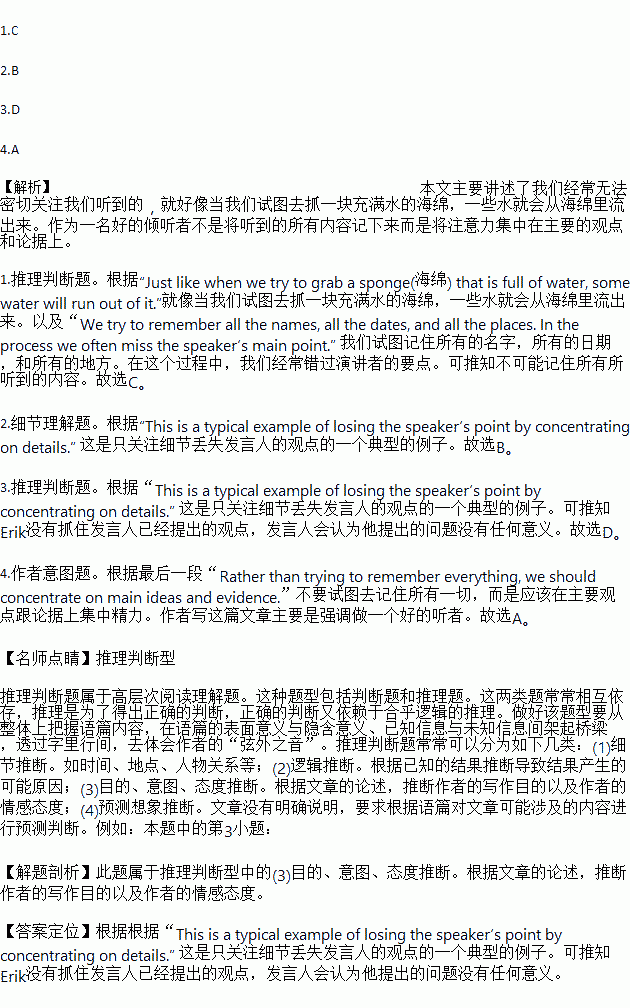题目内容
We are often unable to pay close attention to what we hear. Just like when we try to grab a sponge(海绵) that is full of water, some water will run out of it. But sometimes we try to remember everything a speaker says and try to take in a speaker’s every word as if every word was equally important. We try to remember all the names, all the dates, and all the places. In the process we often miss the speaker’s main point.
Erik Waldman works at a design company. Knowing he had never been good at budgeting his money, he was determined to begin thinking about his economic future. When his employer circulated an e-mail announcing a financial planning workshop(研讨会), Erik signed up right away.
The first session was about retirement planning. Simone Fisher, the lecturer, explained that 7 of 10 Americans between the ages of 22 and 35 do not have a regular savings plan. Erik wrote down every number Simone mentioned.
"If you want to have a retirement income equal to 75 percent of your current salary," Simone continued, "you will need to save at least of 6 percent of your present earnings, taking into account future inflation rates(通货膨胀率). In the meantime, I want to stress that the most important thing is to start saving now."
Erik recorded all the statistics Simone used. When she opened the floor(自由发言) for question, Erik raised his hand and said, "I have two question. When is the best time to start saving for retirement? And how can I figure out my savings target if I don’t know what inflation rates will be in the future?"
This is a typical example of losing the speaker’s point by concentrating on details. Erik had fixed his mind on remembering all the statistics in Simone’s presentation, but he blocked out the man message. Rather than trying to remember everything, we should concentrate on main ideas and evidence.
1.What does the author mean by saying "Just like when we ... run out of it."?
A. We tend to reject what others say.
B. We always try to remember all details.
C. It is difficult for us to remember all things.
D. We often fail to focus on what we are listening to.
2.During the workshop, Erik .
A. got Simone Fisher 's main idea
B. focused on the lecture's details
C. showed little interest in the lecture
D. didn't agree with what Simone had said
3.When hearing Erik's questions, Simone would most probably think .
A. they are very good questions
B. Erik was an excellent listener
C. it was hard to answer the questions
D. his questions were meaningless
4.The passage is written to help those who want to be .
A. a good listener B. a financial planner
C. an excellent lecturer D. a successful employee

